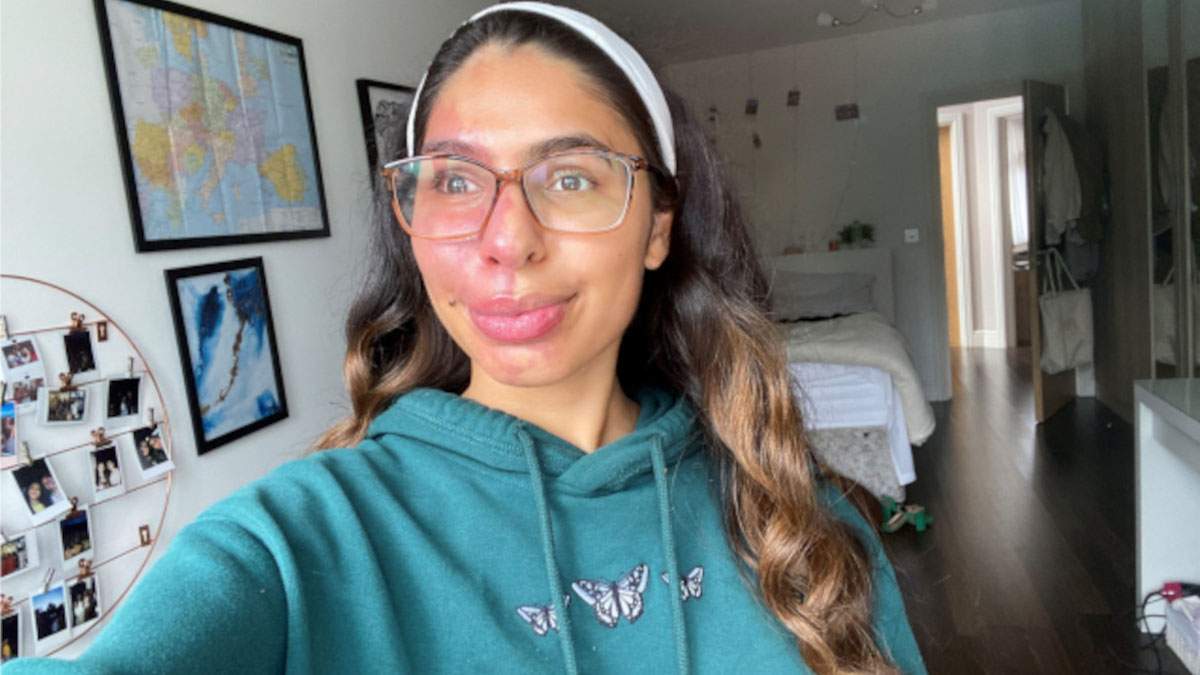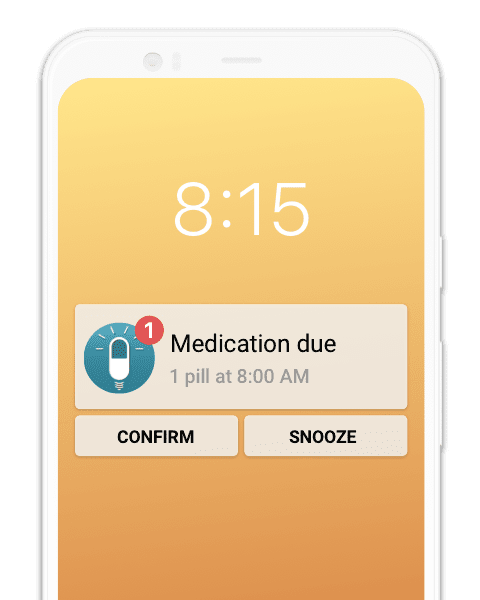Prisha Bathia is an account strategist at Google. Alongside her job at Google, Prisha actively raises awareness on social media about her chronic condition: Sturge Weber Syndrome. Sturge Weber Syndrome is a neurological condition that affects the eyes, brain and face. As a result of the condition, Prisha has a vascular birthmark on the left side of her face (also known as a port wine stain) which has caused the blood vessels in her brain to be a lot larger.
A guest post by Prisha Bathia
Chronic illness sucks, especially as a teenager
My name is Prisha Bathia and have been suffering from Struge Weber Syndrome my whole life. My life is constantly affected by having a chronic condition. I grew up not understanding my condition and became obsessed with hiding my birthmark for fear of ridicule. A lot has changed since then, as now I comfortably explain to everyone my condition and even write and vlog about it weekly on my social media platforms.
However, the journey in between was long and arduous, and the shift in my mindset only really happened as I grew older and decided I couldn’t live my life controlled by my condition. I want to discuss the topic of living with a visible difference and chronic condition and how it can have a profound effect on your life.
Growing up with a chronic condition
From a young age, I never understood why I was in hospital. I often complained and didn’t realize the severity of my condition and how it meant that I had to attend appointments regularly. In countless cases, I missed school due to my treatments and operations and as a result, I often felt quite distanced from school and even my family.
Although enduring an endless amount of procedures and treatments at such a young age was anything but easy, the children's hospital was my safe place for 16 years of my life. I was there so often that the doctors and nurses all recognized me. As I got older, they would do their best to reassure me and explain my treatments to me. Their dedication to helping me and other patients instilled a passion in me to help eradicate the stigma surrounding visible differences as well as raise awareness for chronic conditions.
I was accustomed to living with my birthmark until I started school. Though I knew having a visible difference was unique, I had never thought of myself much different to someone else. It was when I started school that I began noticing differences from my peers. I began to notice that no one looked like me . School also meant that I was forced to go out and meet people who would see and comment on my birthmark. You can sense that people are staring at your birthmark wondering if you have something contagious, and you can never fully relax in those situations. It was hard to explain and answer questions regarding my birthmark, absence from school and how tired I always felt when I, myself, didn’t fully understand either.
Learning and accepting my condition
At the age of 21, growing up and living with a visible difference over the years has increasingly become normal to me.
Around the last few years of high school, I strived to settle in more at school and became more confident with my birthmark. I progressively wore less makeup to school as I accepted my birthmark for what it was. I did not hide anymore. At this age, I could explain and understand why I was always in and out of hospital, what my condition and birthmark was. Peers increasingly understood more as we matured and teachers became more accustomed to my needs. Teachers would sit me at the front of the class so that I could read clearer, I was given the option to work with a laptop so, I didn't have to desperately attempt to read the size 10 font on worksheets, and I could take small breaks between classes to help reduce my migraines.
In the years that followed, I learnt that I shouldn’t let my condition stop me from what I dreamed of. I always thought my chronic illness wouldn't allow me to achieve my dream job, however, if anything it has helped me become more confident and get me where I am today. After completing my apprenticeship at Google in Digital Marketing, I then went onto secure a full-time role as an Account Strategist. I never thought I would fulfill my dream of working at Google, it just didn’t seem possible. I had never seen someone look like me in any big company or in the media. Realizing that my condition shouldn’t stop me from achieving my dreams, I was eager to share my struggles and experiences with having a chronic condition on a social platform.
Starting social media
I started my YouTube channel at the age of 16 to encourage others like me to be proud and embrace our differences. My own experiences of living with a visible difference laid the foundation for my social media accounts as I often speak about the difficulties with working full-time whilst living with a chronic condition. I want to ensure that people like me are more widely represented in the media and that I am able to offer my experience and advice to people.
Through YouTube, I learnt how to analyze the performance of my videos and how I can improve engagement which really interested me. This led me to find my dream career in digital marketing and I decided to pursue it through an apprenticeship rather than going down the conventional university route. Currently, whilst working at Google, I raise awareness of chronic conditions on my social media.
I’ve also found the online world to be such a blessing. It’s helped me educate myself around my health so I can advocate more effectively for myself. I’ve found such a welcoming, compassionate community. The aim of my social media is to ensure that my page and videos are a safe place for people like me. I’ve additionally found that my YouTube content gives me a sense of purpose, a way to give back a little and connect with others. It’s always comforting to know we are not as alone as we may sometimes feel and that there are others who face the same struggles.
Living with a chronic condition
It’s not easy to adjust to our health challenges, including the emotional struggles. We might feel depressed about our loss of function, envious of those who are healthy and strong, ashamed of our limitations. These emotions are normal and as we face a new reality and an uncertain future.
Whilst I’m doing significantly better now than I was at my worst, I continue to live with daily symptoms and limitations. Day to day life with a chronic condition can be tiring. The uncertainty can often be quite stressful with my condition. Symptoms vary from day to day as some days, I’ll wake up and my eyes hurt and they feel heavy so, I have to take time away from the screen and rest. Sometimes, I suffer from nosebleeds and migraines.
For many of us with a chronic condition, one of the hardest part of adapting to an illness is your indefinite identity. It can be hard to recognize the person you are due to a longstanding illness. I still struggle with my limitations being so apparent. From needing naps, bad migraines and often having to turn down invitations from friends and family, it can be disorienting.
Though I’ll always have to take into my condition into account, I will use my condition in inspiring others to keep fighting and using my platform to advocate for more visible difference representation. Having a chronic condition has meant that I am my own biggest advocate as well as for others. Whilst raising awareness, the importance of empathy and kindness are crucial. Being chronically ill lead me down a path of being able to see people, see their pain, feel their pain with them, and join in supporting them through it. I'm able to look at people and wonder how many of them were struggling with (in)visible illnesses like I was.
I will have these conditions for the rest of my life. I could be sad, angry, or hopeless. But I choose to let my chronic illness to make a change in the world and most importantly, make me kind - both to myself and to others.



